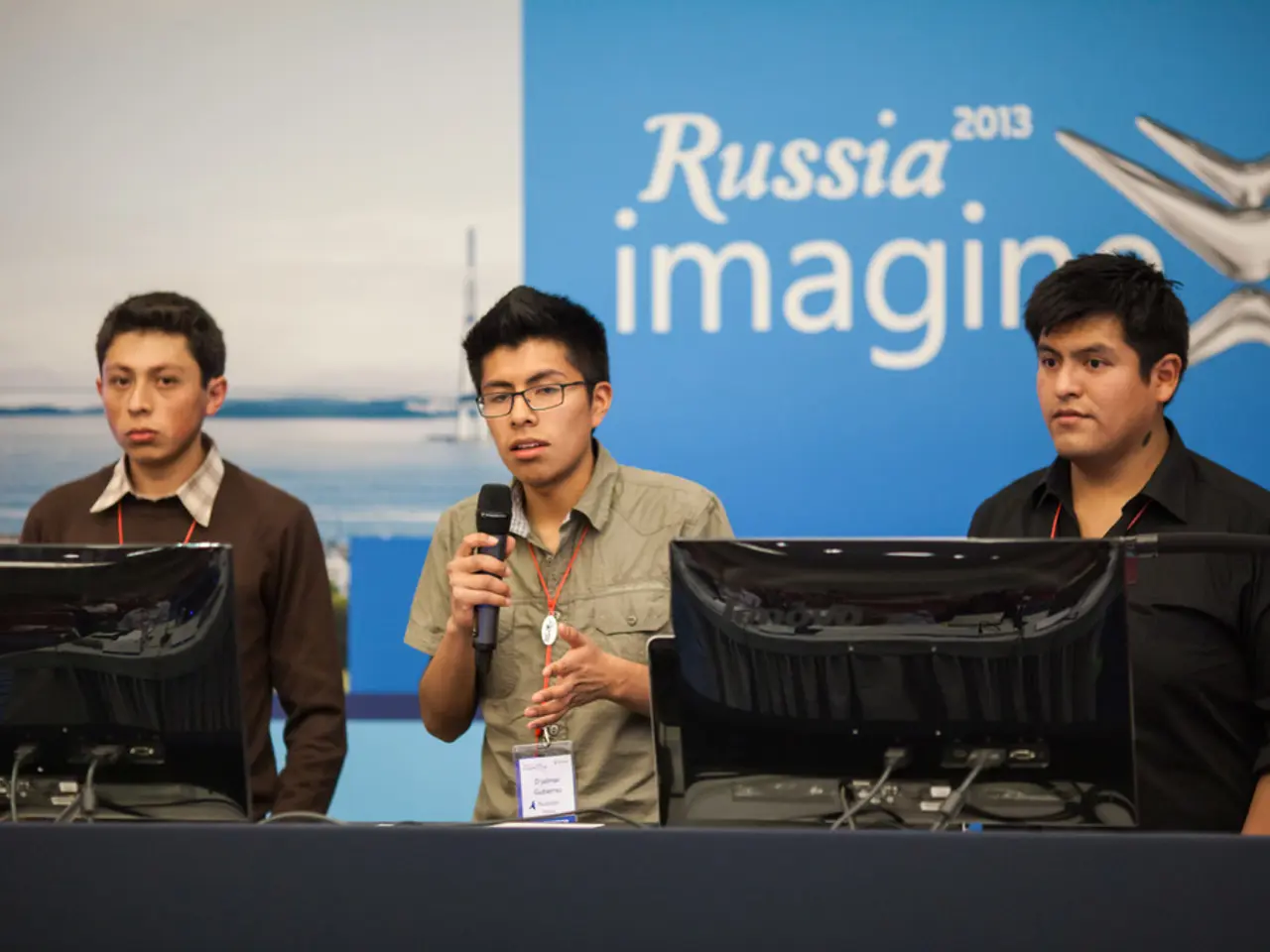Unwillingness of Putin to engage in a meeting with Zelensky, possibly perpetual refusal
In a significant development, arrangements for a bilateral meeting between Russian President Vladimir Putin and Ukrainian President Volodymyr Zelensky are underway, following Trump's meetings. The meeting, if it happens, would be a significant event, marking a potential shift in the ongoing conflict between Russia and Ukraine.
However, the path to a productive meeting is fraught with challenges. Orysia Lutsevich, the director of Chatham House's Russia and Eurasia program, suggests that Putin will have to address the contradiction between his previous statements and the current diplomatic effort. If the meeting takes place, Putin may have to accept the failure of his attempts to negotiate with a leader he considers a joke from a country he does not recognize.
Russia is likely to present demands such as holding elections in Ukraine and imposing unacceptable security guarantees that Ukraine would find hard to accept. Putin may also insist on issues undermining Ukraine's sovereignty or demand concessions consistent with Russia's narrative of Ukraine as an artificial country or a Western proxy, which delegitimizes Ukraine’s independent agency in talks.
Ukraine, on the other hand, has so far ruled out concessions that compromise its sovereignty or legitimacy, such as accepting Russian-imposed elections or security arrangements that concede to Russian demands. Ukrainian officials express skepticism that Putin will agree to meet and fear that the meeting might be avoided by Putin presenting "absurd" demands, reflecting a strategy to derail direct talks. Ukraine under Zelensky remains firm in its stand to maintain its agency and democratic governance.
The core sticking points involve Russia's likely demands for Ukraine to hold elections under Russia's terms and to accept security guarantees unfavorable to Ukraine, and Ukraine's rejection of any concessions that undermine its sovereignty or democratic legitimacy. The possibility of a productive meeting is uncertain due to these conflicting positions and Putin's previous refusals to meet Zelensky directly.
The meeting could represent a significant shift in tone that might be difficult to explain to the Russian people, who have been led to believe that Ukraine's president is a Nazi and that the country is a puppet state of the West. Putin sees Trump as an enabler of Russia's vision of the settlement and expects the US to work with Kyiv to push them to be more flexible and open to Russian demands.
Tatiana Stanovaya, a senior fellow at the Carnegie Russia Eurasia Center, suggests that while Putin does not view a meeting with Zelensky as critical, he could still consider it if he believes it will be successful. Kremlin aide Yury Ushakov mentioned the possibility of raising the level of representatives from Russia and Ukraine, but did not specify if this includes the leaders.
The key demands for Putin in the meeting, according to Stanovaya, include giving up territory that Ukraine still controls. The only wild card for Russia at this point is who Trump will blame when this latest peace effort fails.
[1] Source: News Article 1 [2] Source: News Article 2
Read also:
- United States tariffs pose a threat to India, necessitating the recruitment of adept negotiators or strategists, similar to those who had influenced Trump's decisions.
- Weekly happenings in the German Federal Parliament (Bundestag)
- Southwest region's most popular posts, accompanied by an inquiry:
- Discussion between Putin and Trump in Alaska could potentially overshadow Ukraine's concerns








